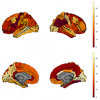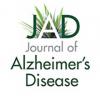9 March 2023
Researchers from Rowan University and Durin Technologies announce highly accurate blood test for Alzheimer’s Disease
A team of researchers from Rowan-Virtua School of Osteopathic Medicine (Rowan-Virtua SOM) and Durin Technologies, Inc., have announced the results of a newly-designed blood test that can detect the presence of Alzheimer’s disease-related pathology up to 10 years before symptoms arise with a nearly 97 percent accuracy rate. Their findings appear online ahead of press in the Journal of Alzheimer’s Disease.
9 March 2023
New Cleveland Clinic-Developed Screening Tool Can Assess Cognition Issues in Older Adults
A self-administered screening tool, developed by Cleveland Clinic researchers, can effectively and efficiently assess cognition issues in older adults. A new study found that the simple test taken on a tablet computer before an annual physical is conducive to use in a primary care setting for detecting mild cognitive impairment, early Alzheimer’s disease, and other related dementias. Results were published in Journal of Alzheimer’s Disease.
10 February 2023
In patients with mild cognitive impairment, apathy can be a predictor of Alzheimer’s disease
The presence of apathy in patients with mild cognitive impairment is strongly linked to a progression to Alzheimer’s disease, giving physicians a possible early diagnosis tool, according to UTHealth Houston research published recently in the Journal of Alzheimer’s Disease.
6 February 2023
Do Sleep Medications Increase Your Chances of Dementia?
A new study shows that sleep medications increase the risk of dementia in whites. But the type and quantity of the medication may be factors in explaining the higher risk. It follows previous work that shows Blacks have a higher likelihood than whites of developing Alzheimer’s, the most common type of dementia, and that they have different risk factors and disease manifestation.
6 February 2023
Study finds obesity-related neurodegeneration mimics Alzheimer’s disease
A new study led by scientists at The Neuro (Montreal Neurological Institute-Hospital) of McGill University finds a correlation between neurodegeneration in obese people and Alzheimer’s disease (AD) patients. Previous research has shown that obesity is linked with Alzheimer’s disease (AD)-related changes, such as cerebrovascular damage and amyloid-β accumulation. However, to date no research has made a direct comparison between brain atrophy patterns in AD and obesity.
24 January 2023
Exposure to World Trade Center Dust Exacerbates Cognitive Impairment in an Animal Model of Alzheimer’s
Mice exposed to World Trade Center dust exhibit a significant impairment in spatial recognition and short- and long-term memory, as well as changes in genes related to immune-inflammatory responses and blood-brain barrier disruption, according to a study conducted by researchers from the Icahn School of Medicine at Mount Sinai and published January 17 in the Journal of Alzheimer’s Disease.
22 December 2022
Smoking increases chances of mid-life memory loss, confusion
Middle-aged smokers are far more likely to report having memory loss and confusion than nonsmokers, and the likelihood of cognitive decline is lower for those who have quit, even recently, a new study has found. The research from The Ohio State University is the first to examine the relationship between smoking and cognitive decline using a one-question self-assessment asking people if they’ve experienced worsening or more frequent memory loss and/or confusion.
22 December 2022
Why a healthy lifestyle is not enough to prevent dementia
Dementia is on the rise in Germany. In the absence of treatment options, the focus is shifting to preventing dementia. In particular, a healthy lifestyle is considered beneficial for brain health. A study by the Faculty of Medicine now shows that opportunities for a healthy lifestyle are unequally distributed: being socially disadvantaged is associated with a higher risk of dementia. The current findings have been published in the Journal of Alzheimer’s Disease.
20 December 2022
Dementia Was Associated with COVID-19 Mortality, but the Association Was Weaker Than in Previously Published Studies
Since December 2019, more than 60 million people have been diagnosed with coronavirus disease 2019 (COVID-19) worldwide, while approximately six million individuals have died as a result of the disease. Hospital treatment was required in about 10%–20% of COVID-19 patients, with this proportion decreasing over time. Several studies have shown the impact of dementia on mortality in COVID-19 patients, however, most studies were conducted during the first months of the COVID-19 pandemic.
20 December 2022
PNI Study Links Muscular Strength and Mobility to Brain Health
Results from a clinical research study co-authored by physicians and scientists at the Pacific Neuroscience Institute (PNI) at Providence Saint John’s Health Center indicate a correlation between two modifiable risk factors – muscular strength and mobility – and brain atrophy among persons with Alzheimer’s disease.















